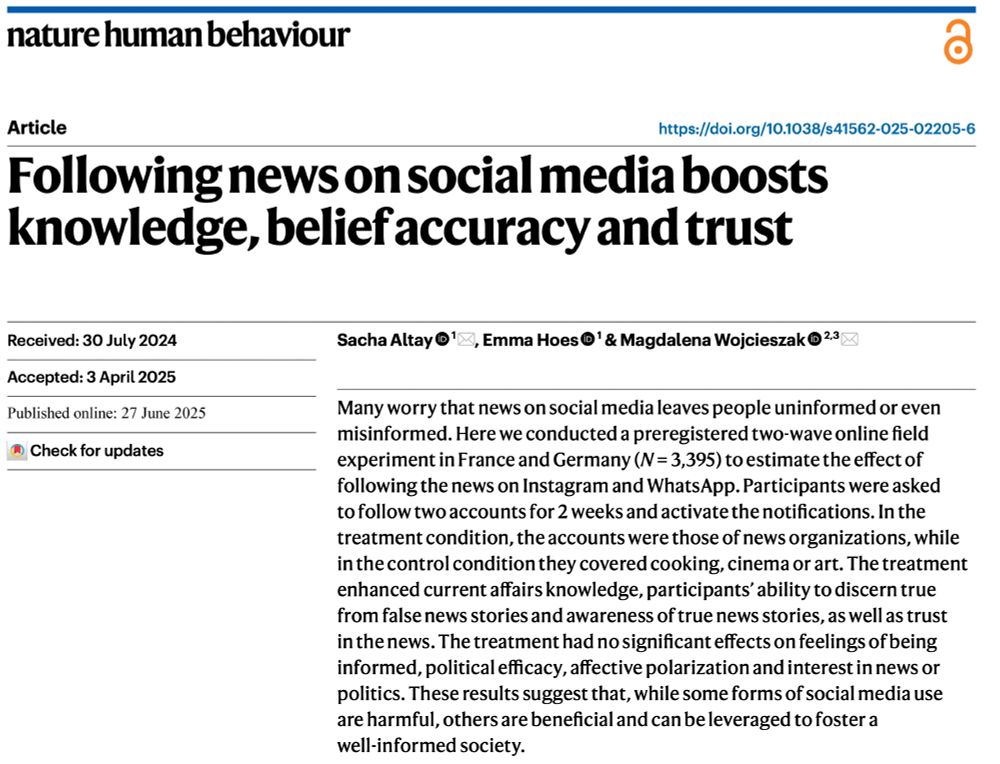
🇨🇭 Postdoc at the University of Zurich, previously Reuters Institute & ENS 🇫🇷
Debriefings that include fact-checks of the false claims used in the experiment reduce false beliefs, improve attitudes towards the study, and show no signs of negative effects.
👉 osf.io/preprints/ps...
Feedback much welcomed :)


Debriefings that include fact-checks of the false claims used in the experiment reduce false beliefs, improve attitudes towards the study, and show no signs of negative effects.
👉 osf.io/preprints/ps...
Feedback much welcomed :)




We show that following the news on WhatsApp or Instagram (N = 3,395 🇫🇷🇩🇪) increases current affairs knowledge, participants’ ability to discern true from false news stories, awareness of true news stories, as well as trust in the news.
doi.org/10.1038/s415...

We show that following the news on WhatsApp or Instagram (N = 3,395 🇫🇷🇩🇪) increases current affairs knowledge, participants’ ability to discern true from false news stories, awareness of true news stories, as well as trust in the news.
doi.org/10.1038/s415...





Check out all the moderators here, including news topics, news selection, or the symmetry of the scale:


Check out all the moderators here, including news topics, news selection, or the symmetry of the scale:



In two experiments (N = 2735), we show that exposure to false news erodes trust in the news and fuels overconfidence in one’s ability to discern true from false news – without affecting news discernment 📰
www.tandfonline.com/doi/full/10.... 🔓

In two experiments (N = 2735), we show that exposure to false news erodes trust in the news and fuels overconfidence in one’s ability to discern true from false news – without affecting news discernment 📰
www.tandfonline.com/doi/full/10.... 🔓


For instance, talking about the news with friends or colleagues (face-to-face) has declined by ~24%

For instance, talking about the news with friends or colleagues (face-to-face) has declined by ~24%
Misinformation studies have a bright future ahead of them 🙌
Misinfo * generative-AI = 🤯💸
www3.weforum.org/docs/WEF_The...


Misinformation studies have a bright future ahead of them 🙌
Misinfo * generative-AI = 🤯💸
www3.weforum.org/docs/WEF_The...
ssrn.com/abstract=445...

ssrn.com/abstract=445...
Yet, this spillover effect is short-lived because anti-vax misinfo does not resonate outside of the anti-vax forums.
ssrn.com/abstract=465...


Yet, this spillover effect is short-lived because anti-vax misinfo does not resonate outside of the anti-vax forums.
ssrn.com/abstract=465...






